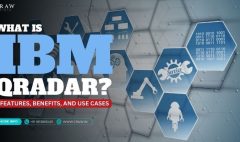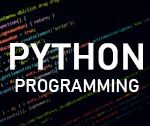What is Cloud Computing? A Beginner’s Guide!

What is Cloud Computing? A Beginner’s Guide!
What is Cloud Computing in Simple Terms?
To tell you the truth, cloud computing is a procedure in which a cloud computing agency provides cloud computing services, storage, databases, networking, software, analytics, and intelligence — all of which are delivered across a verified source of cyberspace that is commonly referred to as the cloud. In order to facilitate quicker innovation, resources must be adaptive, and economies of scale must be achieved.
In addition, you only pay for the cloud computing services that you actually use, which results in lower operating expenses, more efficiency in the operation of your infrastructure, and the ability to scale up as your company’s requirements change. For individuals who are interested in learning more about what cloud computing is with examples and how it works, this description has the potential to be incredibly applicable and useful.
Top Benefits of Cloud Computing
There is little doubt that cloud computing services represent a significant departure from the traditional way in which businesses think about information technology providers. Here are seven of the most common reasons why businesses are moving their operations to cloud computing services:
- Cost
The primary expense of purchasing hardware and software is eliminated by cloud computing services, which also arrange and manage on-site data centers, including the racks for servers, the electricity that is available 24 hours a day, seven days a week for power and cooling, and the information technology specialists who are responsible for managing the infrastructure. On top of that, it adds up quickly.
- Speed
Distinguished cloud computing services are made available on a self-service and on-demand basis. As a result, even enormous quantities of computing resources can be made available in a matter of minutes, with only a few clicks of the mouse. This provides businesses with a great deal of flexibility and relieves them of the burden of capacity planning.
- Global Scale
Cloud computing services offer a multitude of significant advantages, one of which is the capacity to scale in an elastic manner. In terms of cloud computing, this refers to the provision of a precise number of information technology resources. One example would be the ability to adjust the amount of computing power and storage bandwidth to meet specific needs at the precise moment they arise and from the appropriate geographical location.
- Productivity
In most cases, local data centers require a significant amount of “racking and stacking,” which includes the installation of hardware, the repair of software, and various other time-consuming IT administration tasks. In addition, cloud computing services alter the requirements for a number of these functionalities, allowing the information technology teams to devote more time to the acquisition of other essential organizational goals.
- Performance
A global network of highly secure data centers that are regularly upgraded to modern-day computer hardware that is both quick and effective is the foundation upon which the major cloud computing services are built with their operations. In addition, this offers a multitude of benefits in comparison to a single corporate data center, including a reduction in the amount of network latency experienced by applications and significant economies of scale.
- Reliability
As far as the reliability component is concerned, Cloud Computing Services make it far simpler than ever before to create backups of data, recover from data loss, and expand businesses. The fact that data can be duplicated at a large number of surplus locations on the cloud provider’s network also contributes to the fact that it is somewhat more cost-effective than other technologies.
- Security
There are a number of cloud providers that offer a wide variety of policies, technologies, and management techniques that empower your whole security posture. These policies and strategies help to protect your datasets, applications, and infrastructure from any potential attacks.
Types of cloud computing
There are many different kinds of cloud computing services available in the world, but not all of them are the same. Furthermore, a company does not need to use just one kind of cloud computing service. In accordance with the specific requirements of a particular business, the type of cloud computing that is selected is determined by the specific needs of that organization.
As a result of this, a wide variety of models, types, and services have been established in such a way that they provide assistance in selecting the appropriate solution for the requirements.
In the beginning, it is necessary for you to determine the kind of cloud deployment or the specific kind of cloud computing architecture with which your cloud services are deployed. Additionally, there are three distinct methods that can be utilized to deliver cloud services:
- Public Cloud
- Private Cloud
- Hybrid Cloud
| Public Cloud | Third-party cloud service providers are the ones who are responsible for the operation of public clouds. These providers offer their cloud computing resources, such as servers and storage, over the general internet. In the realm of public cloud computing, Amazon Web Services is a shining example. A genuine public cloud is one in which the cloud provider owns and controls all of the supporting infrastructure, including the hardware, software, and underlying infrastructure. |
| Private Cloud | Private clouds are cloud computing environments in which the resources associated with cloud computing are exploited entirely by a single company or organization. A private cloud can also be physically located solely within the organization’s own data center, which is another advantage of this type of cloud. Some businesses utilize the services of third-party cloud service providers in order to host their private cloud service. To put it another way, a private cloud is a cloud environment in which the infrastructure and services associated with the cloud are properly managed on a private cloud network. |
| Hybrid Cloud | The term “hybrid cloud” refers to a combination of public and private cloud computing environments that are brought together by advancements in technology that enable the sharing of data and applications between the two types of cloud environments. A hybrid cloud gives your company a great deal of elasticity and additional deployment options, and it also helps you optimize your existing infrastructure, security posture, and compliance. It does this by enabling data and applications to migrate between private and public clouds. |
What is Cloud Computing definition?
Cloud computing, in its most basic and concise form, refers to the delivery model of computing services, which includes servers, storage, databases, networking, software, analysis, and intelligence. These services are delivered over a valid source of the Internet, which is commonly referred to as the cloud. Cloud computing is characterized by the implementation of rapid innovation techniques, adaptable resources, and economies of scale.
Uses of Cloud Computing
Numerous primetime applications of cloud computing services are available, and organizations may reap the benefits of these services thanks to their rapid implementation and adaptability in terms of working functionalities. In the event that you are using the internet to send emails, edit online documents, and view some movies or web series on over-the-top (OTT) platforms such as Netflix, Amazon Prime, Sony Liv, and so on, there is a bigger likelihood that you are accomplishing these things with the assistance of cloud computing services.
In addition, a few instances of world-class applications of cloud computing services from a reputable cloud provider are offered, including the following examples:
| Create Cloud-Native Applications | The rapid development, deployment, and scaling of applications for the web, mobile, and API would be facilitated by this. Additionally, you may be able to reap the benefits of cloud-native technologies and methodologies, such as containers, Kubernetes, microservices architecture, API-driven communication, and DevOps. |
| Test and Building Applications | Reduce the amount of time and money spent on app development by employing cloud infrastructure that can be easily scaled up or down. |
| Store, Back up, and Recover Data | By sending your data over the internet to an offsite cloud storage system that is highly convenient from any particular zone and any equipment, you may protect your datasets in a manner that is both extremely cost-effective and extremely extensive. |
| Analyze Data | In the cloud, combine the datasets that are stored across all of your teams, branches, and zones. Furthermore, cloud services such as artificial intelligence and machine learning should be made use of in order to expose the gained insights for extra guided consequences. |
| Stream Audio and Video | With high-definition video and audio streaming that is distributed all over the world, you may connect with your respective target audience from any location, at any time, and using any device you find convenient. |
| Embed Intelligence | Makes use of intelligent setups in order to assist in engaging customers and providing useful insights based on the data that is gathered. |
| Deliver Software On-Demand | The term “software as a service” (SaaS) is another name for this type of software. Pay-as-you-go software gives you the ability to provide consumers with the most recent software updates and updates whenever they need them and wherever they are. |
Service Types of Cloud Computing
The following is a list of the many different types of cloud computing services now available, along with their respective parameters:
What is IaaS in Cloud Computing?
It is a cloud computing and infrastructure facility that is well known and offered by a large number of cloud computing service providers. It is appropriately delivered and controlled over the Internet to ensure its proper operation. In addition, Infrastructure as a Service (IaaS) can be scaled up or down according to the requirements of the situation. Furthermore, it eliminates the requirement for a significant investment that would be required for the acquisition and management of any physical servers as well as additional infra allotments. In addition, this cloud computing service provider makes an effort to govern the infrastructure, software, and middleware of the operating system, as well as the applications, while you are renting their services and making use of the necessary service element.
What is PaaS in Cloud Computing?
Platform as a Service, or PaaS Service in cloud computing can be characterized in terms of an ecosystem in the cloud that is responsible for high levels of development and deployment. Additionally, you have the option of purchasing resources from the cloud service provider on an as-needed basis or on demand. PaaS is comprised of Infrastructure as a Service (IaaS), middleware, multiple development tools, numerous business intelligence services, primetime database management systems, and a variety of other services.
Additionally, it eliminates the hassle of obtaining extremely expensive software licenses and arranging them in the appropriate order, which is a significant benefit. Consequently, after you have subscribed, the cloud service provider that corresponds to your subscription will be in charge of managing all of the services.
What is SaaS in Cloud Computing?
The term “Software-as-a-Service,” often known as “SaaS,” refers to a cloud-based technology that provides an all-encompassing software solution that may be purchased on an as-needed basis. As an additional benefit, it may make it possible for you to connect to and make use of cloud-based applications and services through a reliable internet connection. In addition, the cloud service provider is able to exercise a high level of control over the leased software and hardware by implementing appropriate SLAs with appropriate service-level agreements.
What is Serverless Architecture?
A cloud computing service protocol that is extremely well-known is selected by a great number of companies. In layman’s words, serverless computing, also known as serverless architecture, enables developers to rapidly construct applications and fulfill the necessity to govern the essential infrastructure. Additionally, the operations that are related to the infrastructure supply and control are derived from the cloud service provider, which is the reason why it is termed “cloud computing.”
The developers’ consideration of pure business logic and innovations is improved as a result of this, as is their main productivity, and their assets are optimized.
FAQs
About What is Cloud Computing? A Beginner’s Guide!
1: What is cloud computing explain?
Cloud computing, in its most basic and concise form, refers to the delivery model of computing services, which includes servers, storage, databases, networking, software, analysis, and intelligence. These services are delivered over a valid source of the Internet, which is commonly referred to as the cloud. Cloud computing is characterized by the implementation of rapid innovation techniques, adaptable resources, and economies of scale.
2: What are the 4 types of cloud computing?
The 4 types of cloud computing services are as follows:
- Public Cloud
- Private Cloud
- Hybrid Cloud
- Multi cloud
3: Why is IT called cloud computing?
Generally speaking, cloud computing can be conceived of as utility computing or pay-as-you-go computing. Both of these terms are used interchangeably. As a general rule, the cloud symbol, which is typically linked with depicting the Internet in flowcharts and figures, was the initial source of inspiration for the name cloud computing.
4: What are the three types of cloud computing?
The following are the service types of cloud computing:
- Infrastructure as a Service (IaaS)
- Platform as a Service (PaaS)
- Software as a Service (SaaS)
5: Who invented the cloud?
The well-known computer scientist Dr. Joseph Carl Robnett Licklider is generally credited with being the inventor of cloud storage, which is believed to have occurred sometime in the 1960s.
6: Is Google Drive a cloud?
Yes, Google Drive is a cloud storage service that is made available by Google, which is the most successful and influential technology firm in the world.
7: Is Facebook a cloud computing?
The crux of the problem is that Facebook, which is owned by Meta Technologies, is primarily a social networking platform and not a cloud storage provider.
Conclusion
In a nutshell, we made an effort to provide a concise summary of every facet of cloud computing services, ranging from the most basic to the most significant. Additionally, in addition to providing this essential piece of information, you have the opportunity to participate in a full-fledged AWS Associate Course in India, which is offered by Craw Security, a world-class Cloud Computing Institute in India. In addition, a working professional has the opportunity to improve their knowledge parameter and advance their position to a higher level of the hierarchy, such as by becoming an AWS Cloud Security professional. All of these courses have been approved by the Government of India and have received proper accreditation from FutureSkills Prime, a MeitY – NASSCOM, digital skilling initiative, and approved by the Government of India.















